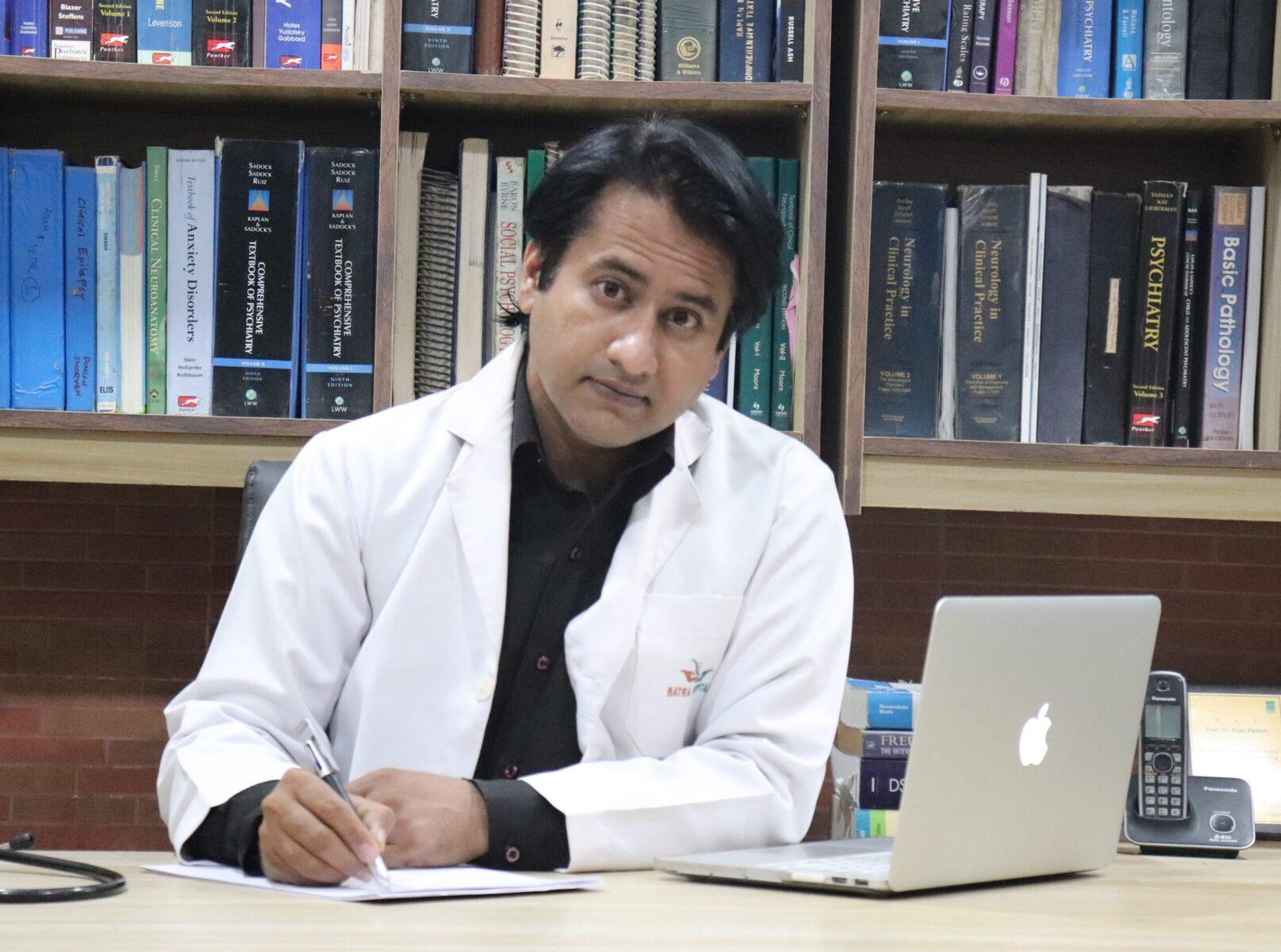Post-traumatic Stress Disorder in Children

All children may experience very stressful events that affect how they think and feel. Most of the time, children recover quickly and well. However, sometimes children who experience severe stress, such as from an injury, from the death or threatened death of a close family member or friend, or from violence, will be affected long-term. The child could experience this trauma directly or could witness it happening to someone else. When children develop long term symptoms (longer than one month) from such stress, which are upsetting or interfere with their relationships and activities, they may be diagnosed with post-traumatic stress disorder (PTSD).
Examples of PTSD symptoms include
- Reliving the event over and over in thought or in play
- Nightmares and sleep problems
- Becoming very upset when something causes memories of the event
- Lack of positive emotions
- Intense ongoing fear or sadness
- Irritability and angry outbursts
- Constantly looking for possible threats, being easily startled
- Acting helpless, hopeless or withdrawn
- Denying that the event happened or feeling numb
- Avoiding places or people associated with the event
Because children who have experienced traumatic stress may seem restless, fidgety, or have trouble paying attention and staying organized, the symptoms of traumatic stress can be confused with symptoms of attention-deficit/hyperactivity disorder (ADHD).
Examples of events that could cause PTSD include
- Physical, sexual, or emotional maltreatment
- Being a victim or witness to violence or crime
- Serious illness or death of a close family member or friend
- Natural or manmade disasters
- Severe car accidents
Treatment for PTSD
The first step to treatment is to talk with a healthcare provider to arrange an evaluation. For a PTSD diagnosis, a specific event must have triggered the symptoms. Because the event was distressing, children may not want to talk about the event, so a health provider who is highly skilled in talking with children and families may be needed. Once the diagnosis is made, the first step is to make the child feel safe by getting support from parents, friends, and school, and by minimizing the chance of another traumatic event to the extent possible. Psychotherapy in which the child can speak, draw, play, or write about the stressful event can be done with the child, the family, or a group. Behavior therapy, specifically cognitive-behavioral therapy, helps children learn to change thoughts and feelings by first changing behavior in order to reduce the fear or worry. Medication may also be used to decrease symptoms.
Prevention of PTSD
It is not known exactly why some children develop PTSD after experiencing stressful and traumatic events, and others do not. Many factors may play a role, including biology and temperament. But preventing risks for trauma, like maltreatment, violence, or injuries, or lessening the impact of unavoidable disasters on children, can help protect a child from PTSD.

I Can Help
Dr Vijay PathakMBBS MD Psychiatry (CIP RANCHI)Positive Psychology & Psychiatry Practitioner Since 2005Dr. Vijay Pathak is a well-known Consultant and practicing psychiatrist in delhi. After completion of MBBS from Sardar Patel Medical College, Bikaner (University of Rajasthan), he worked in different specialties as Neurology, Neurosurgery, Plastic Surgery, Urology as resident Doctor. The grossly unnoticed psychological trauma among patients tilted his interest in Mental Health and he obtained an MD in Psychiatry from the legendry Central Institute of Psychiatry ,Ranchi.. He then worked in the Department of Psychiatry of RML Hospital New Delhi as Senior Resident for three years and as Research Officer for a further one year. During this period he also gained experience in the Drug Dependence TreatmentHis areas of specialization include adult psychiatry (bipolar disorders, schizophrenia and anxiety disorders), child and adolescent psychiatry (especially ADHD), de-addiction (alcohol and substance abuse) and community psychiatry. One of the Top Psychiatrist in Delhi Dr. Pathak is known to be not only effective but also compassionate with his patients, as a result of which they trust him and connect well with him.Dr. Vijay Pathak, also termed as one of the Best Psychiatrist in Delhi by many of his patients in reviews , has extensive training and experience in his profession and is well-versed in the segments of psychopathology, psychopharmacology, neuroscience, clinical genetics, psychological therapies, research methodology, and statistics.
Dr Vijay Pathak Consultant Psychiatrist in Delhi can be found on google by following tags Psychiatrist In Delhi, Best Psychiatrist in delhi, Top Psychiatrist in Delhi, Delhi Psychiatrist, Psychiatrist in Rajouri Garden,Best Psychiatrist in Rajouri Garden, Psychiatrist in Hari Nagar, Psychiatrist in Tagore Garden, Psychiatrist in Raja Garden, Psychiatrist in Central Delhi, Psychiatrist in Ramesh Nagar, Psychiatrist in Moti Nagar, Psychiatrist in Shadipur, Psychiatrist Near Me, Psychiatrist in Karol Bag, Psychiatrist in Rajendra Nagar, Psychiatrist in Punjabi Bag, Psychiatrist in Paschim Vihar, Psychiatrist in Vikaspuri, Best Psychiatrist in uttam nagar, Best Psychiatrist in subhash nagar, Best Psychiatrist indwarka, Best Psychiatrist in nazafgarh, Best Psychiatrist in bali nagar, Best Psychiatrist in patel nagar, Best Psychiatrist in rani bagh, Best Psychiatrist in west delhi, Best Psychiatrist in tilak nagar, Best Psychiatrist innavada, Best Psychiatrist in delhi cantt, Best Psychiatrist in pitampura, Best Psychiatrist in rohini, Best Psychiatrist in ashok vihar